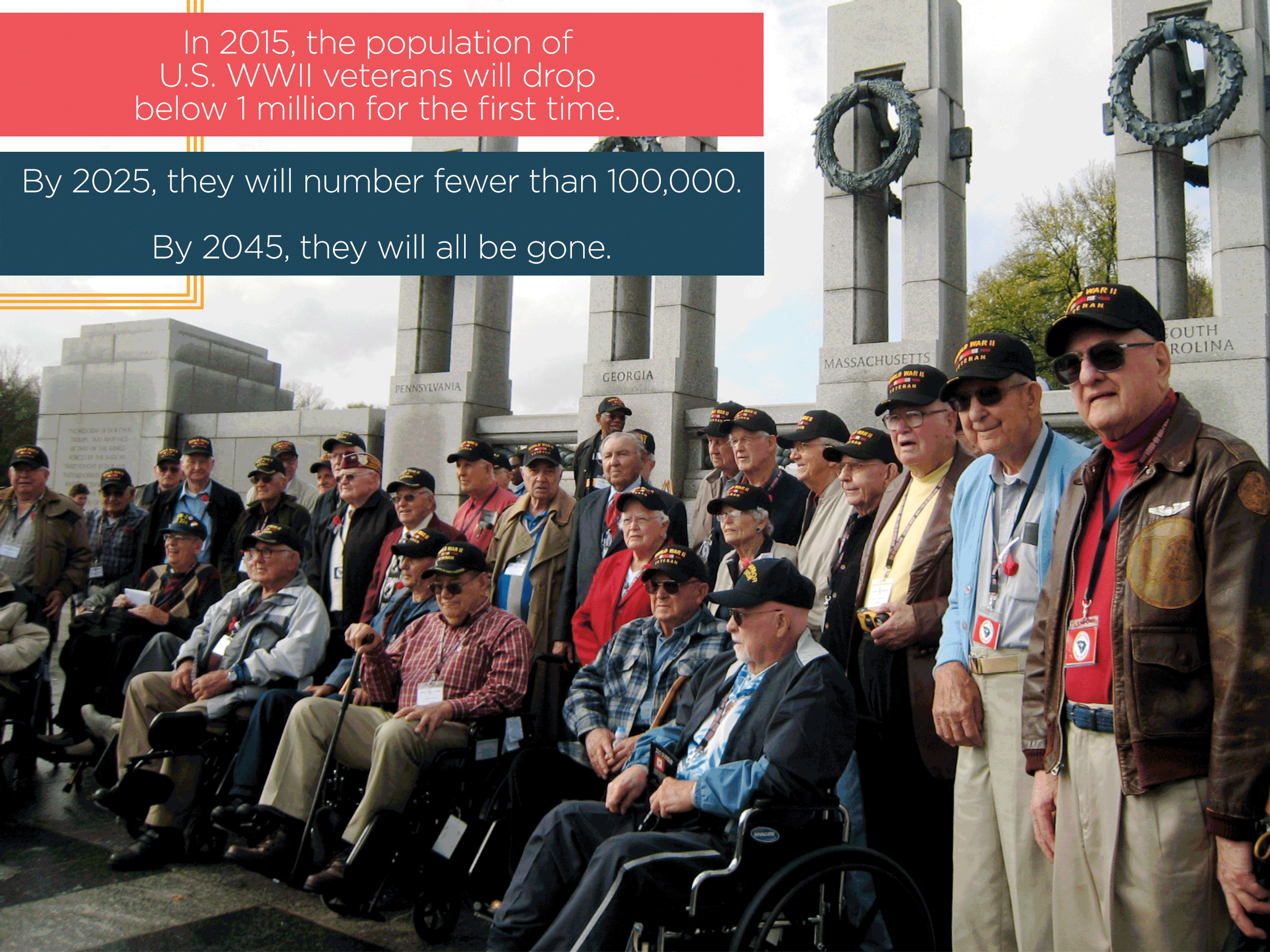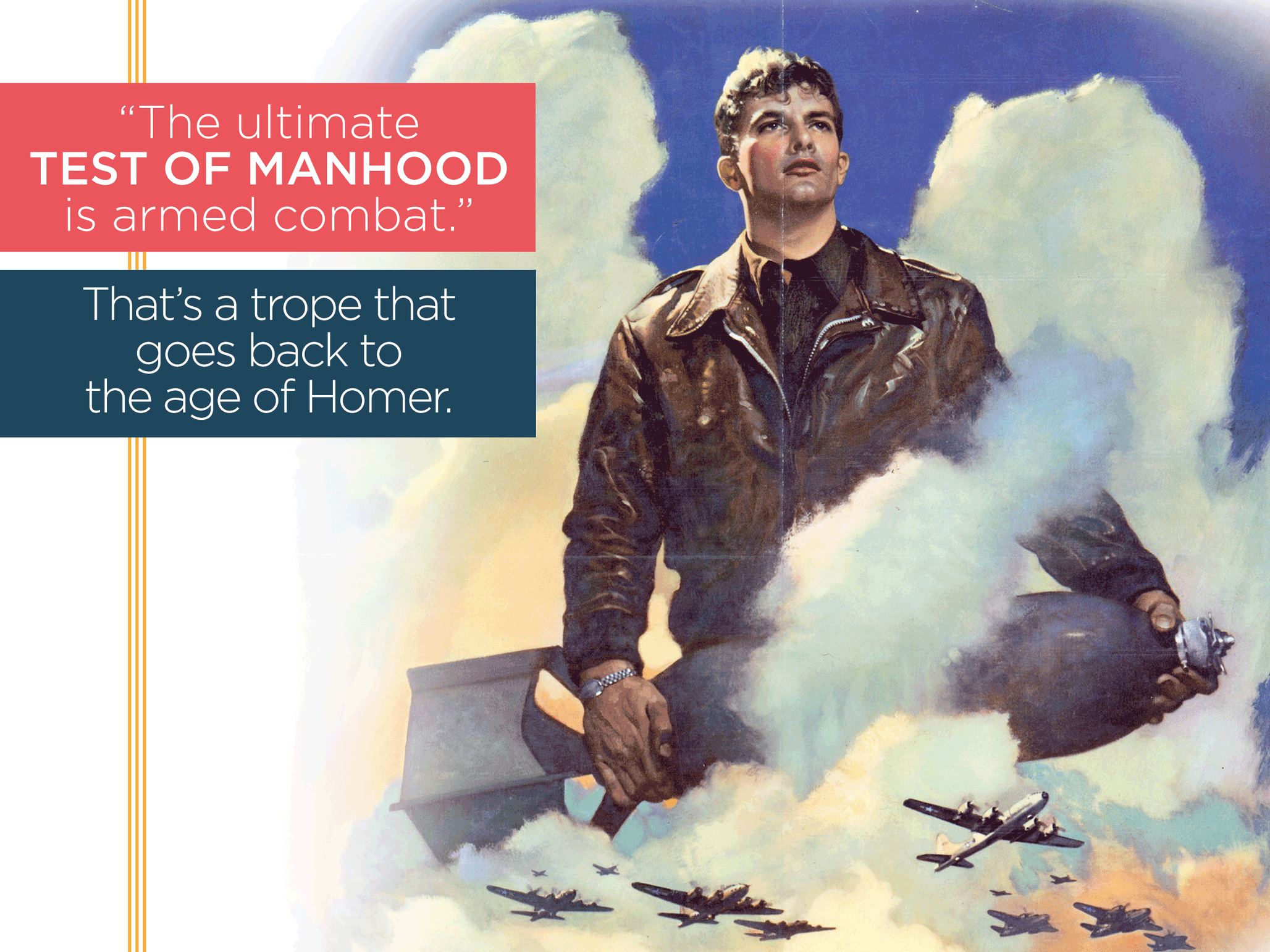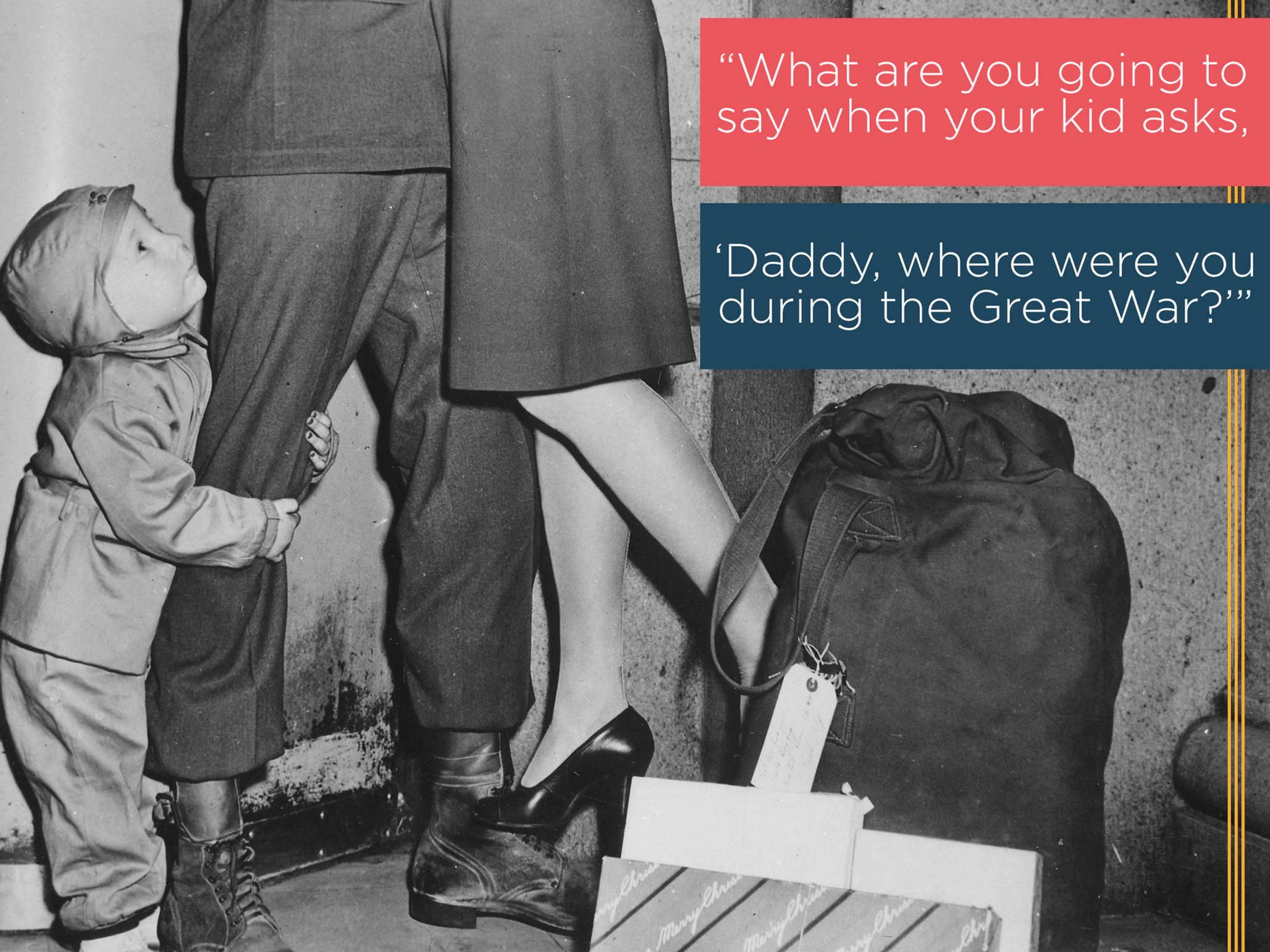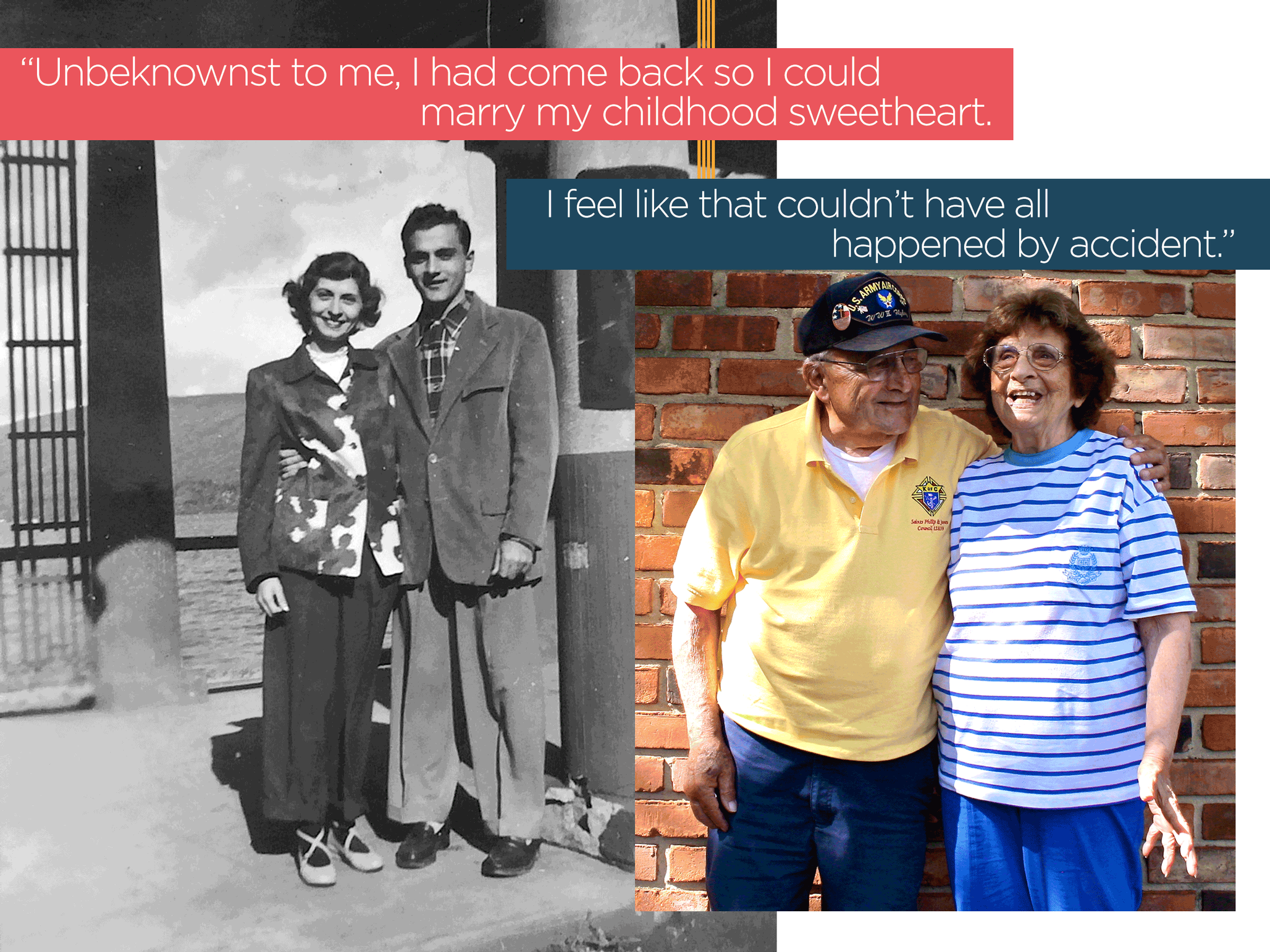Winter 2015
Left out of the "Greatest Generation"
– Rebecca White
Millions of men saw combat during World War II. Others were so far removed from the action that their guilt and regret endures to this day.
It’s a bright Sunday afternoon in August. At home in Long Island, Dominic Ercolano, age 89, sits in a plush beige rocking recliner.
Over wispy gray hair, he wears a blue ballcap with the words “U.S. Army Air Corps WWII Flyboy” stitched in yellow across the front.
.JPG)
With his hat and cane, it’s hard to imagine him in the cockpit of a fighter plane, dodging German bullets — and, in fact, he didn’t. The cane doesn’t assist him in nursing an old war wound, it’s a simple sign of old age. He has spinal stenosis, a pacemaker in his chest, and periodic difficulty breathing due to problems with his lungs. Dominic Ercolano never saw combat.
“We got on a plane to go to Honolulu. We had engine trouble and turned back,” says Ercolano, who spent six months in the mainland United States preparing to be deployed to Japan. “While we were waiting for the plane to be fixed, the war ended.”
Ercolano is one of four surviving World War II veterans at his local VFW post in St. James, a hamlet in Long Island’s Suffolk County. According to the Department of Veterans Affairs, for every 16 Americans who served in the war, only one is still alive; 2015 is projected to be the first year that the population of World War II veterans drops below one million. By 2025, that number will be under 100,000. By 2045, they’ll be gone completely.

After the reinstatement of the draft in 1940 (the only two previous times of mandatory conscription being World War I and the Civil War), around 10 million men were drafted into the war effort. Combined with volunteers, roughly 16 million Americans served in World War II. Some 600,000 were wounded; 400,000 more were killed.
Ercolano says that for himself and his friends — teenagers at the time the draft was reinstated — the War didn’t instill fear, but excitement. “You have to remember, through the ages, warfare — as gruesome as it was — was the only activity that a normal guy could engage in some adventure.” On his childhood block alone (4th Street between Fifth and Sixth Avenues in Park Slope, Brooklyn), Ercolano remembers six neighbors who died in the war effort.
Ercolano’s best friend at the time, Enrico Savo, was killed serving as a gunner on a B-24 plane. “He couldn’t wait to go. They got shot down over the English Channel,” recalls Ercolano.
Ercolano now considers himself lucky not to have seen combat, having married his childhood sweetheart and fathered three children. But this feeling of luck has come with much reflection and has changed drastically over the years.
Ercolano enlisted in the army in 1942 and was drafted into the Air Corps in 1943, which had been his goal from the start. He was jubilant at the prospect of adventure, but his excitement never blossomed into lived experience. By the time Japan surrendered, Ercolano had spent much of his enlisted time working as the “kitchen police” and on guard duty at a military base in Nebraska.
At first, all he felt was anger. “We missed out,” he says. “You know the movie Mister Roberts?” he asked, referencing the 1955 film starring Henry Fonda about a World War II navy cargo ship that was far from the action. “That kind of describes what I went through.”
Until this interview, Ercolano admits, he had never really spoken about the war, aside from casual conversation. “Who would be interested in this? No one,” he answers. “People are interested in combat.” It’s clearly a topic that has weighed on him over the last 70 years. “I kept asking myself, ‘Why me?’ Everywhere I went, I was pushed aside — and why not Enrico?”

“WAR, SINCE TIME IMMEMORIAL, has been associated with virility and masculinity,” says David M. Kennedy, Professor of History at the Bill Lane Center for the American West at Stanford University. “The ultimate test of manhood is armed combat. That’s an old trope that goes back to Homer.”
Kennedy is 73 years old, and was of a draftable age in the Vietnam era, but was not selected.
“There’s kind of a code amongst people my age. When you meet someone new you quickly see whether you’ve served or not,” says Kennedy of social situations where he’s watched men bond over their military service. “I don’t know the code because I wasn’t there.”
Kennedy’s father was born in 1896 and didn’t serve in either World War I or II. “He said he was too young for the first war and too old for the second war. But it turns out that wasn’t true,” says Kennedy.
It was only when his father turned 80 that Kennedy learned that his father was actually physically unqualified to serve. His selective service system designation, which classified men based on characteristics such as health and whether they enlisted or were drafted, was IV-F; reserved for those with physical defects. He’d had scoliosis.
Kennedy says his father admitted to him during conversations about why he hid the truth. “He would say things like, ‘What are you going to say when your kid asks, Daddy, where were you during the Great War?’”

LIKE MANY OF HIS GENERATION, Richard Kolb, 63, grew up with World War II a constant presence in his youth. On both sides of his family, he says, every male relative served in World War II. “Your minister in church was a World War II veteran, your school teacher was a World War II veteran,” says Kolb. Pop culture was much the same: “Growing up in the 1950s, you would have been exposed to a tremendous number of World War II movies.” Kolb, now editor-in-chief of VFW Magazine, says that growing up in the wake of World War II greatly impacted his decision to enlist in the Vietnam War in 1969.
Jerry Newberry, 62, a Vietnam Veteran and the Assistant Adjutant General for the Veterans of Foreign Wars, says that within his age group, he’s met men who feel guilty for not having served in Vietnam. “I’m like, ‘You didn’t miss anything,’” he says.
Newberry can relate to the feeling of exclusion among those who haven’t served or seen combat. “I can only imagine that if your peer group and your neighbors and the majority of males in your age group were serving in the military and you weren’t, you certainly were left out.”
Especially when it came to World War II.
Newberry’s stepfather was a World War II veteran who drove a landing craft in the Pacific Ocean. “He usually kept his stories light. That was his job. He wouldn’t go into any detail about that,” Newberry says. But his stepfather’s pride was obvious to Newberry. He had a tattoo on his forearm of Betty Boop with an anchor and gave warm welcomes to those who had also served.
“I think World War II was absolutely the last time the country came together not only militarily, but civilian wise — all of our resources, all of our efforts, were behind a common goal,” he adds. For men like his stepfather, that led to a sense of a lifelong bond. “Various places, he’d meet somebody his own age and they’d start talking,” Newberry remembers. “‘You served?’ ‘Yeah.’”
Bill Detweiler, 74, the Military and Veterans Affairs Consultant to the President of the National WWII Museum in New Orleans, says that the culture after the war was not one that encouraged open, emotional conversation.
“My father was in the military. I had three uncles at Pearl Harbor. None of them got a scratch,” says Detweiler. “They didn’t talk very much about it. None of those fellows did.”
“We have people at the museum today who still don’t really talk about it,” says Detweiler. “They’ll come in to the museum with their families. They’ll see exhibits that remind them of their service, and that’s when they start talking about it for the first time.”
AT THE ERCOLANO HOME IN LONG ISLAND, Anne, Dominic’s wife, lived in Brooklyn during the war’s early years. She recalls a dearth of men on the streets. Most people seemed to have a family member or close friend overseas. Her own brother was in the Navy. “It was very scary,” she says. “The jobs weren’t plentiful, and you couldn’t do anything.”

Anne was encouraged to enlist by a friend of hers in 1943, when she was 18 years old. “I thought it would be exciting,” she remembers. She was stationed at the Pentagon, where she kept records of the enlisted men — a job she took from a man who was being deployed overseas. “They needed the guys in the service. They had to fight.”
Anne volunteers that her husband’s lack of combat doesn’t bother her. “I never thought about it.” Her husband Dominic has thought about it — a lot — but has accepted his fate and moved on.
“I was disappointed, but unbeknownst to me, I had come back so I could marry my childhood sweetheart,” he beams, pointing to old black and white photographs of the pair on their honeymoon. Anne and Dominic have been married for 65 years. “I feel like that couldn’t have all happened by accident.”
* * *
Rebecca White is Narratively's Director of Operations, as well as an editor and regular contributor to the publication. Her work has appeared in such outlets as The New York Times and Al Jazeera America, among others.
Cover photo courtesy of Wikipedia
This story was created in partnership between The Wilson Quarterly and Narratively.